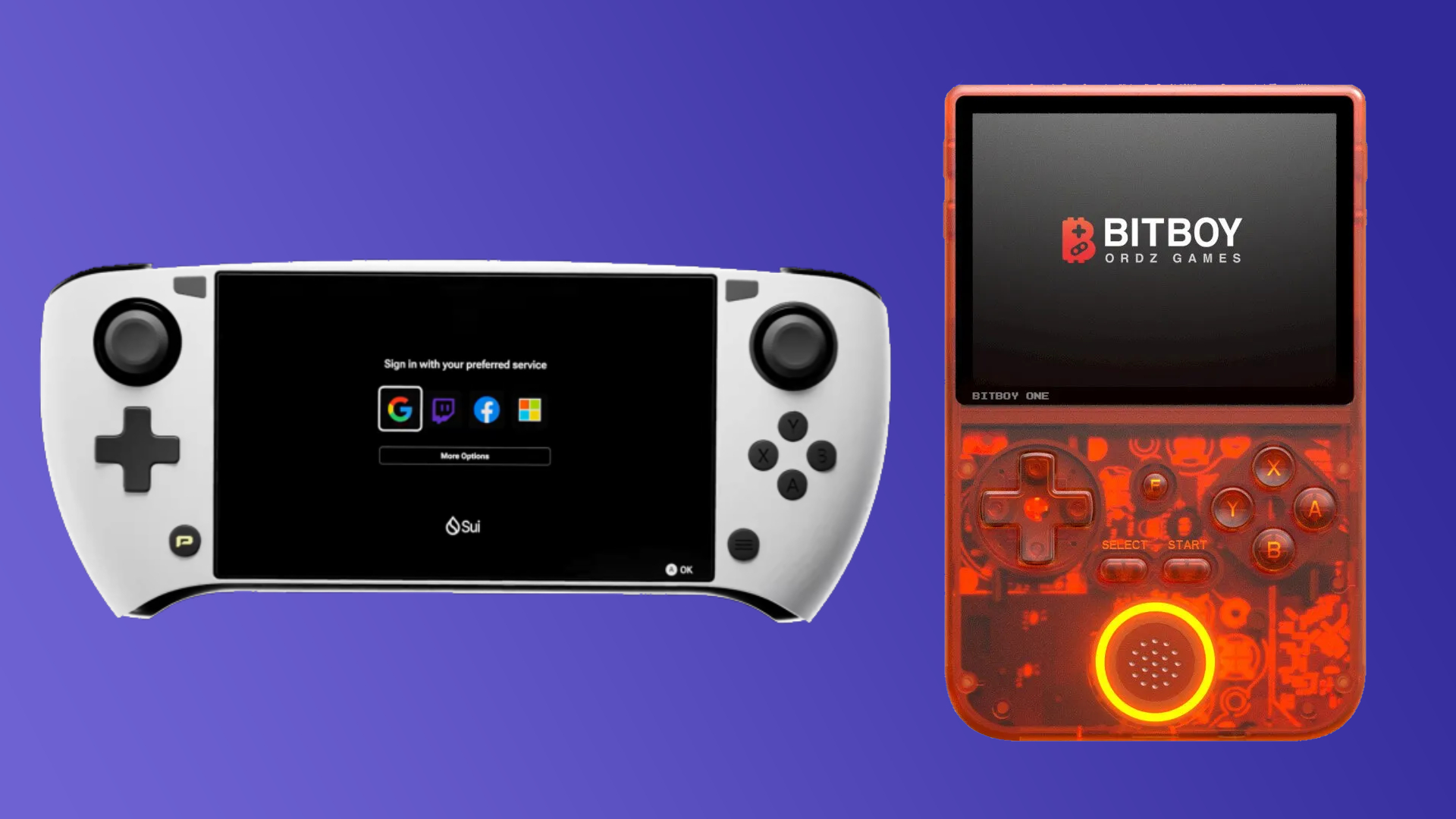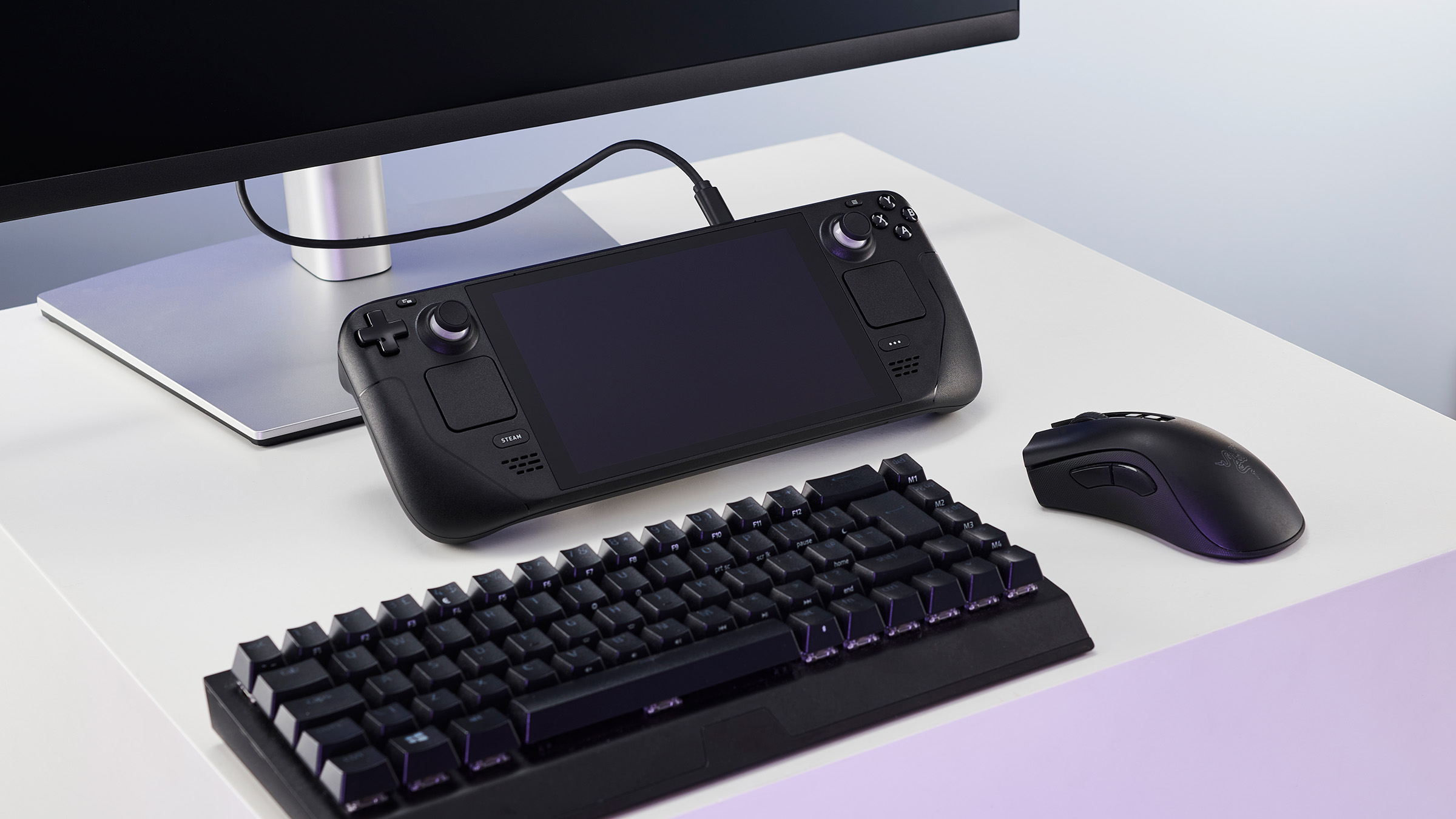These two crypto-integrated handhelds are aiming to make Web3 gaming happen—because if it doesn't work the first time, try, try and try again
It's our old friend the blockchain, rising from its cold, hard grave.

Let's kick off with some terminology: Blockchain. Bitcoin. NFT. Web3 gaming. Provided your eyes haven't rolled so far into the back of your head you're still able to read the rest of this article, I have some terrible news for you—two new handhelds are aiming to corner the market once more on blockchain-based gaming, only this time, it's mobile.
First up we have the SuiPlay0X1, a handheld gaming device with "native Web3 capabilities", or at least, a pretty render of one (via Ars Technica). Announced proudly as "the world's first blockchain native handheld games console", the SuiPlay 0X1 is integrated with the Sui blockchain, a Layer 1 blockchain and smart contract platform.
What that means for potential buyers is handheld "Web3 gaming", which in basic terms is essentially gaming connected to a blockchain or with some cryptocurrency integration. Your in-game assets can be tracked and transferred on a blockchain, and in this case you can set up a crypto wallet tied to your handheld. Bully.
But keep your fork, crypto fans, because there's more. Hot on the heels of a sneak preview event at Paris Blockchain Week on April 7 was the Twitter announcement of the BitBoy One, a translucent orange Web3 gaming handheld (via Tom's Hardware). Developed by Ordz Games, it too makes a bold claim, in this case that it's the "world's first Web3 gaming device", and otherwise looks like a standard emulation handheld that once spent a frantic night with a Terry's Chocolate Orange.
However, there's a party trick. Despite the relatively meagre hardware inside, including the four year old Arm SoC-based Rockchip RK3566, 32GB of internal memory and 4GB of RAM, Ordz claims that not only can you use it as hardware crypto wallet, you can also earn tokens through the device by playing blockchain play-to-earn games. And as if that wasn't enough crypto in your handheld gaming experience, the creator—the mysteriously named z3th—says that you'll also be able to mine Bitcoin using the device. Very slowly.
“The mining power of the physical device is very, very weak. It will take years to mine…you’re not going to make real money from it. But it’s for fun.”
And making some real money might be a genuine concern, as the BitBoy One is expected to retail for approximately $500, which means that for a little bit more, you could buy a Steam Deck OLED. It won't make you any real money either, but at least it's got the hardware to let you play some games that don't look like they were first released in 1989.
Keep up to date with the most important stories and the best deals, as picked by the PC Gamer team.
Web3 gaming is, at its core, a pretty nebulous concept to begin with, and one that's been tried many times before, usually with catastrophic results. And amidst horrifying reveals of concepts like a "mechanism to control NFT selling pressure" and sustained internet backlash towards the concept, some companies attempted to back off from discussing the terms involved entirely.

Steam Deck OLED review: Our verdict on Valve's handheld.
Best Steam Deck accessories: Get decked out.
Steam Deck battery life: What's the real battery life?
Best handheld gaming PC: What's the best travel buddy?
Gamers seem to have been not just reluctant to jump on the Web3 gaming bandwagon, but outright hostile towards the concept as a whole. It's difficult to see how these two handhelds might change perceptions in this regard, unless the aim here is to bring crypto fans into the gaming space that may not have been interested otherwise.
As things stand, I'll believe in the Web3 gaming future, and indeed, these handhelds, when I see it. For now the SuiPlay0X1 seems to exist purely as a render, and the BitBoy One, while looking closer to a production unit, has the sort of hardware that you'd usually find in a much cheaper emulator device.
Neither seem likely to set the world on fire, and as far as gaming goes, I get the sense that the vast majority of gamers will be somewhat pleased by that. Crypto and gaming have come together so far like oil and water. Nothing here seems likely to change that fact anytime soon.

Andy built his first gaming PC at the tender age of 12, when IDE cables were a thing and high resolution wasn't—and he hasn't stopped since. Now working as a hardware writer for PC Gamer, Andy's been jumping around the world attending product launches and trade shows, all the while reviewing every bit of PC hardware he can get his hands on. You name it, if it's interesting hardware he'll write words about it, with opinions and everything.

